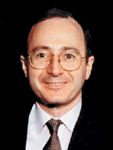- Acne
- Actinic Keratosis
- Aesthetics
- Alopecia
- Atopic Dermatitis
- Buy-and-Bill
- COVID-19
- Case-Based Roundtable
- Chronic Hand Eczema
- Drug Watch
- Eczema
- General Dermatology
- Hidradenitis Suppurativa
- Melasma
- NP and PA
- Pediatric Dermatology
- Pigmentary Disorders
- Practice Management
- Precision Medicine and Biologics
- Prurigo Nodularis
- Psoriasis
- Psoriatic Arthritis
- Rare Disease
- Rosacea
- Skin Cancer
- Vitiligo
- Wound Care
Article
Meta-analysis reaffirms efficacy, safety of efalizumab in heavy patients
A meta-analysis of data from seven studies including 2,674 patients was conducted to examine outcomes of efalizumab in heavy patients. With the subjects categorized into two weight groups using a cutoff of 200 pounds, treatment responses and adverse event profiles were similar regardless of weight.

Key Points

The analysis extracted data from four phase 3 and three open-label studies evaluating efalizumab for the treatment of moderate-to-severe psoriasis.
Over half of the patients included weighed more than 200 pounds, says Mark Lebwohl, M.D., Sol and Clara Kest Professor, and chairman of dermatology, Mount Sinai School of Medicine.
In intent-to-treat analyses of efficacy outcomes, there were no significant differences comparing efalizumab-treated patients weighing ≤200 pounds versus their heavier counterparts, whether considering PASI-50, PASI-75 or PASI-90 response rates.
Treatment benefit was also maintained similarly in the heavier patients and those weighing <200 pounds over a duration of up to 36 months.
In safety analyses, there was no evidence of an increased incidence of adverse events among the heavier patients.
"The incidence of obesity has been reported to be about twofold higher among psoriasis patients compared with the general population, and that problem is further highlighted by the high median weight of patients in the studies of efalizumab and other biologics.
"Treatment of psoriasis in heavy patients can be challenging for a variety of reasons, and heavy patients are more likely to require systemic treatment.
"However, fixed-dose drugs often don't work as well in obese patients compared with normal-weight individuals, and the presence of multiple medical comorbidities in overweight and obese patients may also limit use of some agents because of toxicity concerns. For example, methotrexate is a particular problem in obese patients, who are likely to have nonalcoholic steatohepatitis and be at increased risk for methotrexate-induced cirrhosis," Dr. Lebwohl tells Dermatology Times.
"Efalizumab is dosed by weight, and so may be predicted to provide consistent therapeutic benefit unrelated to patient weight. The present analyses support that concept and corroborate and extend previous investigations that were based on smaller patient numbers and shorter follow-up but similarly showed outcomes were unaffected by patient weight," Dr. Lebwohl says.
When the patients were stratified into their various subgroups, baseline patient demographics, excluding weight, as well as baseline disease characteristics were similar across all groups. Mean psoriasis duration was almost 20 years, about two-thirds of patients had received prior systemic therapy, median PASI score was about 17, and median body surface area involvement was about 24 percent.
Drop-out rates after the first 12 and 24 weeks of efalizumab treatment were also compared between the two weight cohorts in the various study groups, because dropouts were considered non-responders in the ITT analysis. Within the three groups, the drop-out rate was slightly higher among the efalizumab-treated patients weighing <200 pounds compared with the heavier patients, although none of the differences were statistically significant.
"These findings rule out the potential for confounding of the efficacy results due to disparate drop-out rates," Dr. Lebwohl explains.
The most common adverse events during the first 12 weeks of efalizumab treatment were headache, infection, chills and nausea, and with the exception of infection, the rates of these most frequent events declined significantly with ongoing treatment.
Special safety analyses were conducted focusing on identifying potential weight-related differences in the rates of congestive heart failure, infections in diabetic patients and hypertension among efalizumab-treated patients.
Despite the increased risk for these comorbidities in overweight and obese patients, no safety signals emerged.
Note: Dr. Lebwohl points out that infliximab is also administered in doses based on body weight.
Disclosure: Dr. Lebwohl is an advisory board member, consultant and/or investigator for Genentech and other companies marketing products for treatment of psoriasis.
Newsletter
Like what you’re reading? Subscribe to Dermatology Times for weekly updates on therapies, innovations, and real-world practice tips.










